Through the Woods and Off the Grid
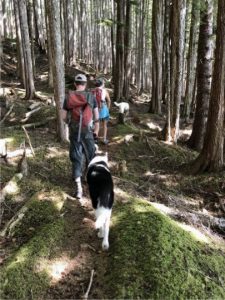
While traveling in place to visit my friend Jan, I paid a visit to Jan’s daughter Megan, who’s been living in place a forty-minute walk outside a remote village on Chichagof Island in Southeast Alaska.
We arrived by ferry and walked most of an hour to the off-grid home that Megan and her husband have borrowed while they search for a place of their own. Because they live so far even from the nearest tiny town (where the population peaks at 100 during the few weeks of summer and shrinks to half that the rest of the year), and because even that town is difficult to get to, they live in place most of the time.
They live without a car, electricity, a fridge, the internet or indoor plumbing. The activities of daily living take them outdoors daily to fetch water, visit the outhouse, tend the garden, hunt and forage for food, fetch wood for heat, and walk to visit their homesteading neighbors.
We spent most of three days and two nights at their place, sleeping in our own tent and sleeping bags and contributing some treats to our meals: Vermont cheddar and homemade pepper jelly; store-bought crackers to go with the cheese; and beer and wine to wash it all down. When we left, we carried out the empties.
The Privilege of Choosing Where to Live
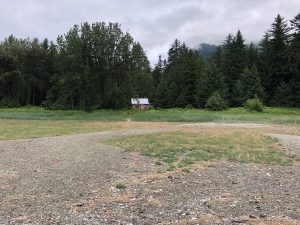
Living in place in Alaska, even in such a modest way, is as much as a privilege as living in place in Vermont. Even though I use electricity generated by the sun, heat with wood harvested from the forest, and eat food mostly cooked at home from raw and minimally processed ingredients, mine is unquestionably a privileged life.
Deciding where to live is no longer a simple matter of choice, but also a matter of luck, fate, politics and weather. According to recent Unicef data, over 40 million people have been displaced by violence and conflict within the borders of their own countries. Another 19 million have been internally displaced by earthquakes, tsunamis and flooding.
The UN estimates that the number of international refugees is about 258 million people.
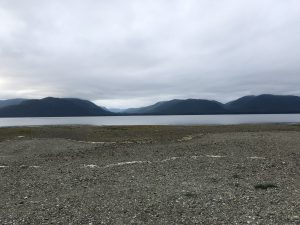
For these people, having a place to call home is a dream. By comparison, even Megan’s off-grid life is luxurious, and mine is fat with twenty-first century amenities.
Global Urbanization
When I started writing Living in Place, it was partly in reaction to the shift in the world’s population from the countryside to urban centers. More than half the world’s population now lives in cities.
The population density of urban living has advantages, though easy access to and immersion in the natural world is not among them. One consequence of this population shift is that fewer people have experience of, connection to, or comfort in the natural world. Nature Deficit Disorder is real, and the consequences threaten both human health and the health of our planet.
Connection to Nature
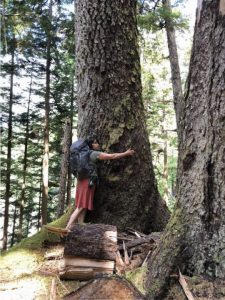
Connection to the natural world is one of the main draws of rural life for me. But my rural life in the crowded northeast is high tech, modern and heavily dependent on fossil fuel compared to Megan’s off-the-grid homestead in Outback Alaska. Nevertheless, we’re both rich with choice that migrants and refugees lack. And we both have a connection with nature that may be fading or non-existent among our readers.
I’ve known of Megan all her life, though it’s only in the past few years that we’ve become colleagues and friends through our common interest in making sense of our worlds in prose. Megan is a writer, and she has graciously agreed to write occasional guest posts about how she goes about Living in Place on Chichagof Island, in Southeast Alaska.
I hope you’ll return next week to read her story, Commuting With Bears.
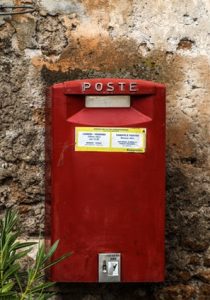 You can have these essays delivered to by email by signing up with your email address in the box at the right.
You can have these essays delivered to by email by signing up with your email address in the box at the right.
Hi Deb,
Just pointing out that, city dwellers use less per-capita energy for both transportation and heating.
Jonathan
Agreed. Did you see last week’s post? In “A Transportation Vacation” I wrote, “I was always aware of my carbon imprint on this fragile landscape, where the Mendenhall Glacier’s recession is an alarming testament to climate change. It didn’t particularly make me feel better that I wasn’t a passenger on one of the behemoth cruise ships that each disgorge four- to five- thousand passengers a day to take sight-seeing excursions by helicopter and float plane from port,” and credit the Tlingit for living lightly on the land. In “Living in Place in Alaska,” I note that “my rural life in the crowded northeast is high tech, modern and heavily dependent on fossil fuel.” And I will address this issue again and again. That said, I counter your observation with two thoughts: 1) There are different ways to skew statistics and calculate per capita carbon v. total locale carbon, etc; and 2) my point is really about how urban dwellers are divorced from nature (or spew a lot of carbon to travel to it.) This is not an easy, black and white, better or worse issue, but a very complex one. My job is to irritate people into thinking about the myriad trade-offs we all make all the time.